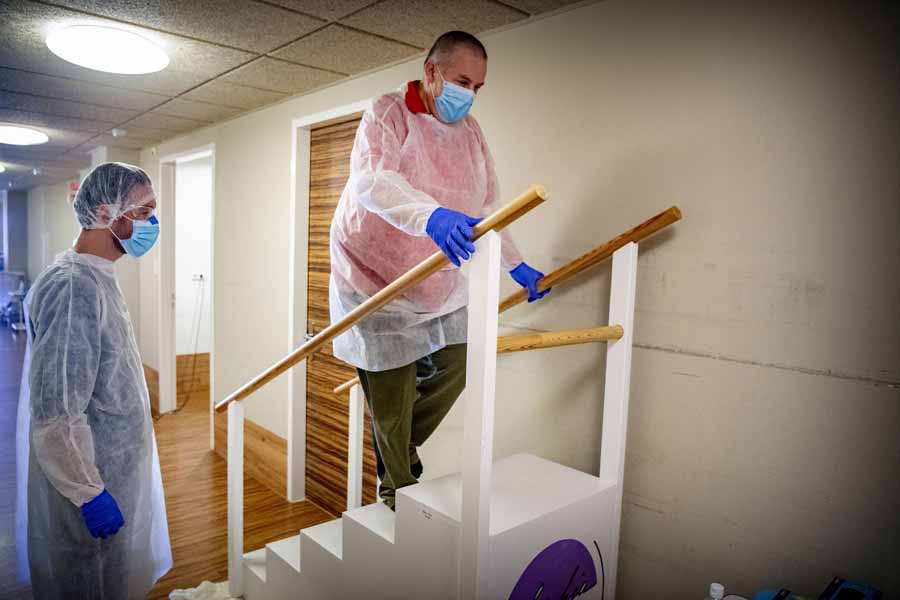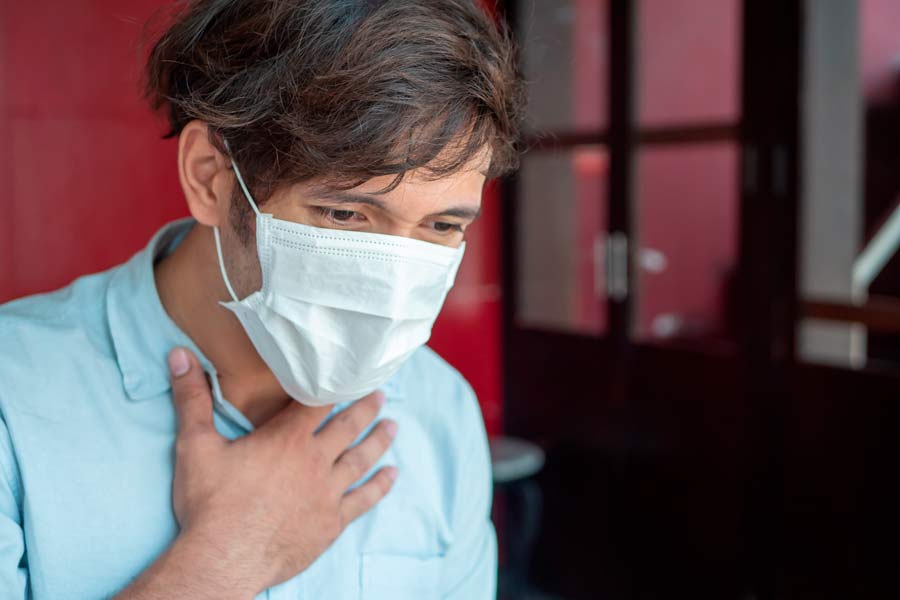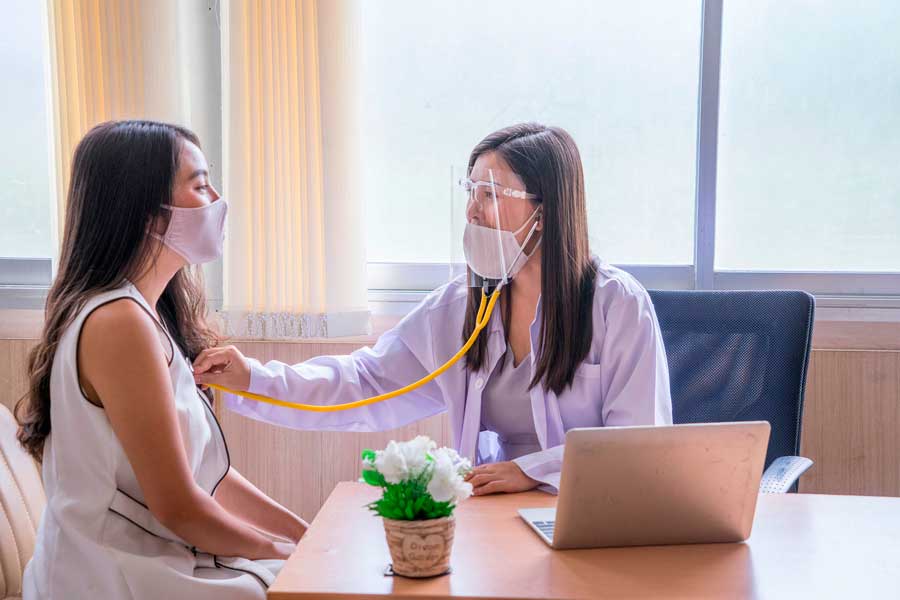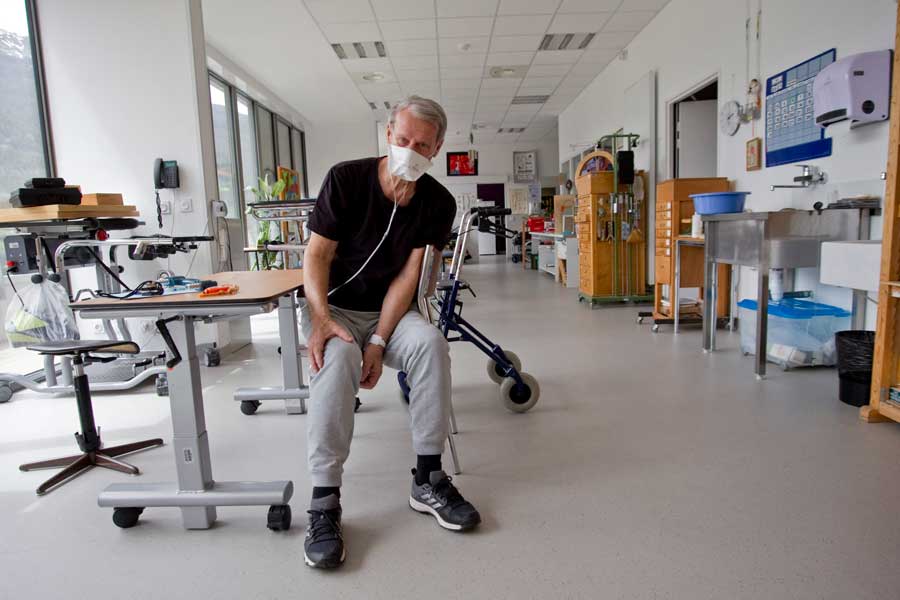Did you know that if you get sick with COVID-19 you can suffer from after-effects for weeks or even months? This set of conditions is called post-COVID syndrome or Long COVID.
“Post-COVID syndrome is one in which symptoms of COVID infection persist beyond 4 weeks after primary infection,” says Dr. Gloria Aguirre, infectious disease specialist on the COVID team at TecSalud.
The after-effects can be chronic fatigue, headaches, or loss of smell and taste, but medical studies show that there is a large variety of disorders in different organs.
TecSalud specialists explain for CONECTA what we should know about this condition, also known as Long COVID.

Post-COVID syndrome: after-effects lasting from 4 to 12 weeks
According to the specialist, after having overcome acute COVID-19 infection, some patients might present prolonged symptoms for up to 12 weeks.
“After emerging from infection, Long COVID is the persistence of symptoms that can last beyond 4 weeks after the primary infection and can last up to 12 weeks.”
She clarified that there is already talk of chronic syndrome if these after-effects last more than 12 weeks.
“There are some experts who divide it into acute post-COVID syndrome and chronic syndrome, which is when it lasts beyond 12 weeks after the primary infection,” she explained.
“Long COVID is the persistence of symptoms that can last beyond 4 weeks after the primary infection and can last up to 12 weeks.”
The causes: Nerve damage and inflammation
The SARS-CoV-2 virus uses the receptors for angiotensin-converting enzyme 2 (ACE2) to enter cells. This enzyme is found throughout the body, in places such as oral and nasal mucosa, the lungs, heart, intestines, liver, kidneys, brain, and other organs.
Despite entering through the respiratory system, the virus infiltrates the nervous system, causing damage to its cells and inflammatory reactions in organs and tissues, which are the factors that leave after-effects.
“These after-effects are caused by the state of hyperinflammation, by the damage the virus has done, or its toxicity in tissues.”
After the body overcomes COVID-19, tissues may take time to recover. In addition, inflammation is maintained if the body’s mechanisms for returning to normal fail, becoming what is known as a persistent inflammatory state.
“There is no single explanation for post-COVID symptoms, but there are several mechanisms involved. Although we know that the main complication is at the respiratory level (pneumonia), COVID is a systemic infection,” Aguirre explained.
“These after-effects are caused by the state of hyperinflammation, by the damage the virus has done, or its toxicity in tissues.”

The most common after-effects of post-COVID syndrome
- Fatigue (58%)
- Headaches (44%)
- Hair loss (25%)
- Shortness of breath (24%)
- Loss of taste (23%)
- Loss of smell (21%)
If I had COVID-19, will I have any after-effects?
Not all COVID patients necessarily suffer from these after-effects, although most of those who do were hospitalized or in intensive care, explained the specialist.
“There are several studies of reported persistence of symptoms in which, for example, between 80 and 90% of people who were admitted to a hospital with COVID had persistent symptoms afterward.
“The proportion is possibly higher because many of them were in intensive care and lost muscle mass or suffered some degree of malnutrition. Some cases have 1 or 2 symptoms that persist, and up to half of them are said to have 3 or more,” she said.
In general, said the TecSalud specialist, there is talk that a third of COVID-19 patients could suffer from after-effects.

If I have post-COVID syndrome, can I recover 100%?
According to the specialist, the recovery will depend on each person, their state of health, and if they suffer from previous comorbidities such as diabetes or hypertension, as well as the severity and level of impact of the after-effects.
“In previously healthy people, the prognosis is believed to be good. In patients who have a comorbidity, the most important thing is that they continue to treat their underlying condition,” said the doctor.
Dr. Reynaldo Lara, an infectious disease specialist at TecSalud, pointed out that there is still no scientific evidence on the duration of these after-effects.
“We know that this (COVID-19) is a new disease. We’ve known about it for a year and a half. It’s important to continue conducting research. At the moment, it’s hard for us to know how long these after-effects last. Only time will tell us that.”
“It’s important to note that many of these complications need a certain form of rehabilitation so that the after-effects that linger from this disease are minimal.”
Does the SARS-CoV-2 virus remain in the body?
Dr. Aguirre points out that post-COVID syndrome occurs after primary infection, so the virus is no longer active.
“Long COVID is the aftermath of acute COVID infection, but it doesn’t mean the virus is still in someone’s body. Therefore, it’s no longer spread to other people,” she said.
Asymptomatic people may have Long COVID
Some studies show that people asymptomatic of COVID-19 may be affected by Long COVID, Dr. Aguirre said.
“Yes, there are people who are asymptomatic during acute infection and can then present these post-COVID symptoms, or after-effects. Diagnosing it in those people becomes a challenge,” she added.
“Although we know that the main complication is at the respiratory level (pneumonia), COVID is a systemic infection.”
The Delta variant and vaccinated people: unknowns about after-effects
The TecSalud doctor pointed out that there is no evidence to indicate that the post-COVID syndrome is more serious with the Delta variant or in people who have been vaccinated.
“The Delta variant is much more transmissible, and whether it’s more likely to cause severe disease is being studied. It’s too early to establish if it presents an increased risk for post-COVID symptoms.”
The specialist mentions that vaccinated people could have less risk, but there are still no scientific studies that validate this information.
“Perhaps there is a relationship, since decreasing the state of hyperinflammation also lowers the risk of post-COVID symptoms, but there is still no data on this,” she said.

If you detect prolonged symptoms, go see a doctor
Aguirre said that if you have recovered from a COVID-19 infection and have prolonged symptoms, the best thing is to go see a specialist.
“Any symptoms should warrant assessment. Some symptoms may seem mild, but whatever the symptoms, you should always go for an assessment to try to rule out other causes.
“It’s important that you don’t self-medicate. Don’t overlook any symptoms because it’s very easy for us to self-medicate, for example, if we have diarrhea or a fever.”
Dr. Aguirre said that no symptoms should be overlooked, so you should always seek medical assessment.
She stressed that the warning signs for seeking medical help can range from chest pain, lack of improvement in shortness of breath, fever, or any symptoms that last beyond the period of acute COVID-19.

The parts of the body where it manifests
According to a study by the British Medical Journal, post-COVID syndrome can manifest itself in different ways:
* Lungs
- Dyspnea (shortness of breath)
- Chest pain
- Dry cough
* Pancreas
- Pancreatitis (Abdominal pain, nausea, vomiting, and fever)
- Pancreatic damage
* Kidneys
- Acute kidney damage
- Impaired kidney function (swelling of limbs, reduced urination, shortness of breath)
* Brain (neurological damage)
- Headaches
- Depression
- Anxiety
- Brain fog (lack of concentration)
- Fatigue
- Sleep disorders (insomnia)
* Heart
- Chest pain
- Myocarditis
- Arrhythmia
- Increased troponins, which equates to damage to the heart
* Spleen
- Decrease in B and T lymphocytes.
- Atrophy of lymphoid follicles (antibody producers)
* Liver
- Liver damage (Yellowish eye-skin color, nausea, dark urine, pale stools, swelling, fatigue, bruising, loss of appetite, itchy skin).
* Gastrointestinal tract
- Diarrhea
- Nausea
- Abdominal pain
* Other
- Hair loss
- Loss of smell and taste
- Night sweats
- Tinnitus (noise in the ears).
YOU SHOULD ALSO READ:





